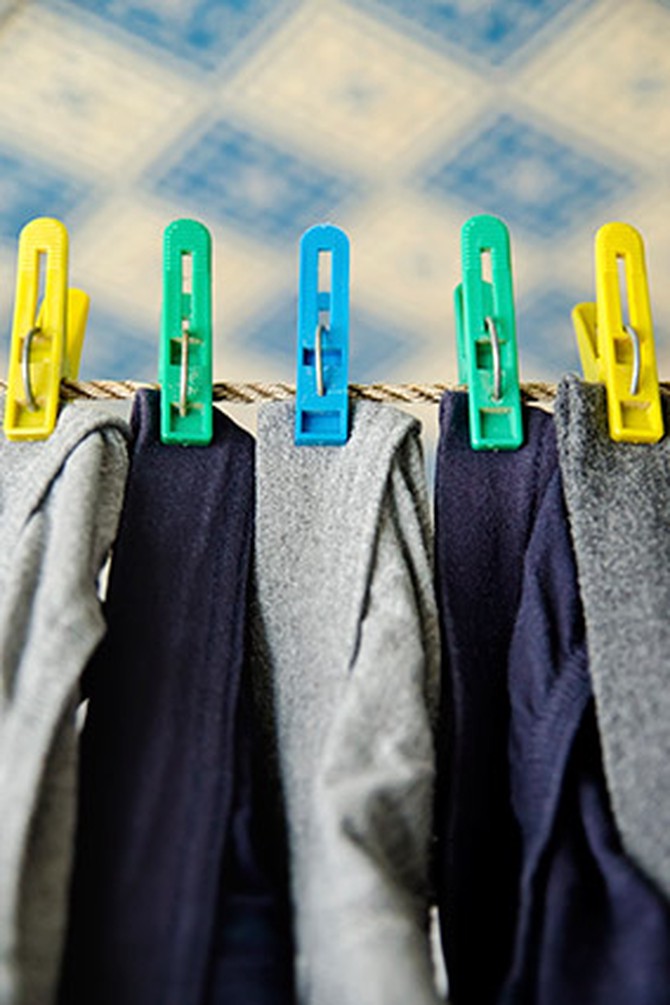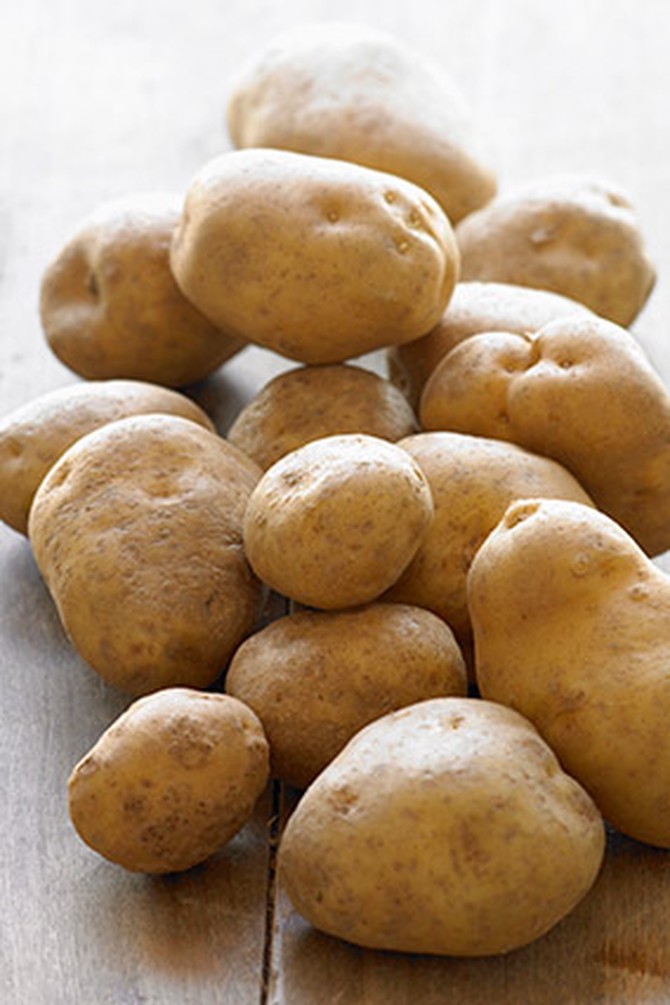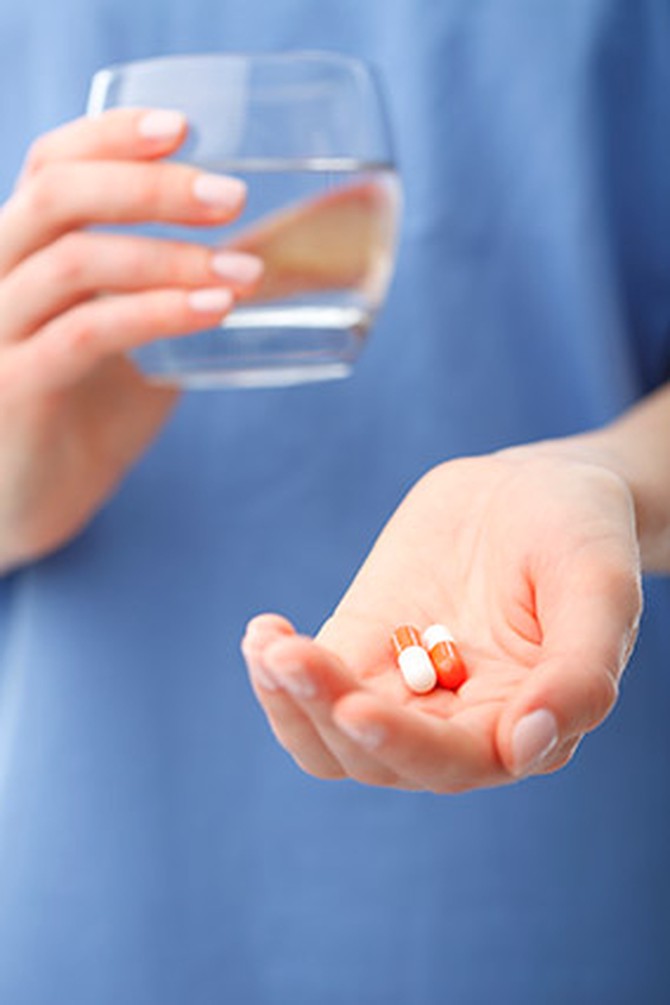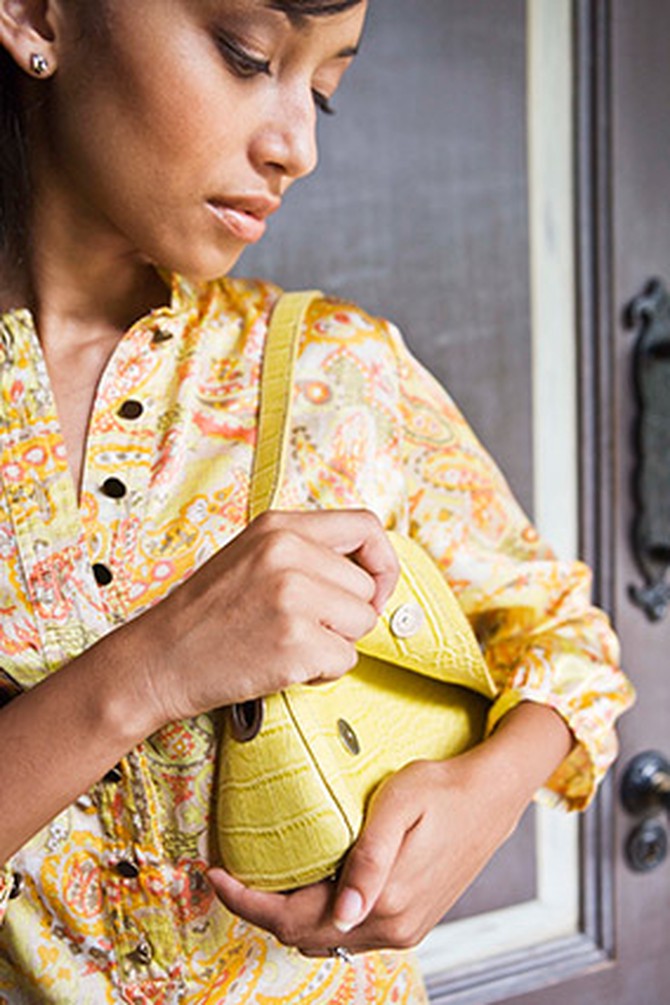Stupid Health Mistakes You Didn't Know You Were Making
You're already aware of the folly in breakfast-skipping, stiletto-wearing, volume-blasting, sleep-skimping and diet-soda-drinking. But did you overlook these? (We did.)
By Jena Pincott

Photo: Thinkstock
You Air Your Dirty Laundry
The mistake: You hang up damp clothes and towels inside your home.
Fresh from the washer, your laundry may look clean, but it pollutes the air, found a study at the Mackintosh Environmental Architecture Research Unit at the Glasgow School of Art. Damp clothes can increase humidity, creating an allergenic environment in which dust mites and mold spores grow (depending on where you live) at concentrations 300 percent higher than safe limits. About 25 percent of the homes where laundry was air-dried tested positive for Aspergillus fumigatus, a fungus that causes lung infections in people with weakened immune systems. (And just because you don't see greenish fuzz on the wall doesn't mean you're safe—spores are often invisible to the naked eye.)
The lesson: For eco-lovers who worry about using the dryer but don’t hang the wash outside, the researchers recommend hanging it in a space that has, ideally, an independent heat source and ventilation. (When drying clothes in the bathroom, turn on the fan and shut the door.)
Fresh from the washer, your laundry may look clean, but it pollutes the air, found a study at the Mackintosh Environmental Architecture Research Unit at the Glasgow School of Art. Damp clothes can increase humidity, creating an allergenic environment in which dust mites and mold spores grow (depending on where you live) at concentrations 300 percent higher than safe limits. About 25 percent of the homes where laundry was air-dried tested positive for Aspergillus fumigatus, a fungus that causes lung infections in people with weakened immune systems. (And just because you don't see greenish fuzz on the wall doesn't mean you're safe—spores are often invisible to the naked eye.)
The lesson: For eco-lovers who worry about using the dryer but don’t hang the wash outside, the researchers recommend hanging it in a space that has, ideally, an independent heat source and ventilation. (When drying clothes in the bathroom, turn on the fan and shut the door.)

Photo: Thinkstock
You Brush Right After Breakfast
The mistake: You clean your teeth directly following a meal or drink.
Every time you drink a beverage like coffee or orange juice, acid floods your mouth. If you brush your teeth before your saliva neutralizes the pH, you're essentially scratching that acid into your slightly softened enamel—which accelerates erosion. A 2004 study found that when people brushed within 20 minutes after downing something acidic (diet soda), they lost more dentin (the layer under the enamel) than those who waited longer before brushing.
The lesson: After you've finished an acidic beverage like fruit juice, soda or wine, drink a cup of water and wait at least 30 minutes before brushing your teeth. By then, saliva (pH 7) will neutralize the acids and remineralize the enamel, explains Sérgio Lima Santiago, an associate professor at Brazil's Federal University of Ceará.
Every time you drink a beverage like coffee or orange juice, acid floods your mouth. If you brush your teeth before your saliva neutralizes the pH, you're essentially scratching that acid into your slightly softened enamel—which accelerates erosion. A 2004 study found that when people brushed within 20 minutes after downing something acidic (diet soda), they lost more dentin (the layer under the enamel) than those who waited longer before brushing.
The lesson: After you've finished an acidic beverage like fruit juice, soda or wine, drink a cup of water and wait at least 30 minutes before brushing your teeth. By then, saliva (pH 7) will neutralize the acids and remineralize the enamel, explains Sérgio Lima Santiago, an associate professor at Brazil's Federal University of Ceará.

Photo: Thinkstock
You Store Potatoes in the Fridge
The mistake: Your go-to starches were exposed to too-high or too-low temperatures.
Cookies, dark toast, chips, fries and other beloved brownish carbs contain two volatile ingredients: sugar and an amino acid called aspargine. At high temperatures—frying, roasting and baking—the duo forms acrylamide, a chemical whose link with some cancers (including endometrial, ovarian and renal cell) recently prompted the US Food and Drug Administration (FDA) to issue a consumer update. Potato chips and French fries are particularly worrisome, research finds, especially when they have been refrigerated before cooking. The cold turns more starch into sugar, resulting in even higher levels of the carcinogen.
The lesson: At home cooks can reduce the high levels of acrylamide in fried and roasted potatoes by storing spuds in a dark unrefrigerated place and soaking the raw slices in water for 15 to 30 minutes before cooking. When it comes to cooking techniques, boiling, steaming and microwaving are the most acrylamide-free. A general rule of thumb? The browner a starch gets when cooked (or overcooked), the more acrylamide it contains (you want your toast light tan, never burnt).
Cookies, dark toast, chips, fries and other beloved brownish carbs contain two volatile ingredients: sugar and an amino acid called aspargine. At high temperatures—frying, roasting and baking—the duo forms acrylamide, a chemical whose link with some cancers (including endometrial, ovarian and renal cell) recently prompted the US Food and Drug Administration (FDA) to issue a consumer update. Potato chips and French fries are particularly worrisome, research finds, especially when they have been refrigerated before cooking. The cold turns more starch into sugar, resulting in even higher levels of the carcinogen.
The lesson: At home cooks can reduce the high levels of acrylamide in fried and roasted potatoes by storing spuds in a dark unrefrigerated place and soaking the raw slices in water for 15 to 30 minutes before cooking. When it comes to cooking techniques, boiling, steaming and microwaving are the most acrylamide-free. A general rule of thumb? The browner a starch gets when cooked (or overcooked), the more acrylamide it contains (you want your toast light tan, never burnt).

Photo: Thinkstock
You Take the Same Pill for Hangovers as Headaches
The mistake: You often use the painkiller acetaminophen as a chaser.
Mix acetaminophen with an alcoholic drink or two and your kidneys may take a hit, found a preliminary study led by Harrison Ndetan, MSc, MPH, DrPH, an assistant professor of research and biostatistics at Parker University in Dallas. Half of the subjects who reported taking the painkiller and drinking a small to moderate amount of alcohol on a weekly basis suffered from kidney disease (a striking 123 percent higher increase in risk than those who took either alone rather than in combination.). Acetaminophen inhibits a protein that the body uses to metabolize alcohol, Ndetan explains. Plus, alcohol can cause dehydration, which stresses the kidneys even more.
The lesson: Don't combine acetaminophen with alcohol, Ndekan advises (although he notes that the findings just show an association and research is ongoing). Which sounds straight-forward enough, but the painkiller is a "hidden" ingredient in many over-the-counter medications.
Mix acetaminophen with an alcoholic drink or two and your kidneys may take a hit, found a preliminary study led by Harrison Ndetan, MSc, MPH, DrPH, an assistant professor of research and biostatistics at Parker University in Dallas. Half of the subjects who reported taking the painkiller and drinking a small to moderate amount of alcohol on a weekly basis suffered from kidney disease (a striking 123 percent higher increase in risk than those who took either alone rather than in combination.). Acetaminophen inhibits a protein that the body uses to metabolize alcohol, Ndetan explains. Plus, alcohol can cause dehydration, which stresses the kidneys even more.
The lesson: Don't combine acetaminophen with alcohol, Ndekan advises (although he notes that the findings just show an association and research is ongoing). Which sounds straight-forward enough, but the painkiller is a "hidden" ingredient in many over-the-counter medications.

Photo: Thinkstock
You Carry a Shiny Yellow Handbag
The mistake: You picked a bright faux-leather accessory.
Handbags, wallets and belts made of bright "pleather" (usually vinyl or PVC) frequently contain lead levels that are much higher than those allowed in children's products, reported a study by the Center for Environmental Health (CEH). The highest in content was found in yellow purses, followed by green, orange and red. Lead, which may transfer in trace amounts from handbag to hand—and into the mouth—causes developmental problems in children and is linked with heart disease and cancer in adults. While the CEH reached an agreement with dozens of retailers back in 2010 to limit lead in merchandise, the agency continues to find high levels in about 15 percent of purses and accessories sold in major stores.
The lesson: To be safe, avoid fake-leather purses and wallets, and opt for canvas, hemp, nylon or leather instead. Check out the agency's Purse Watch Twitter page for the latest. (The CEH also tests bags for free, return postage not included, and offers drop-in testing in its California office.)
Handbags, wallets and belts made of bright "pleather" (usually vinyl or PVC) frequently contain lead levels that are much higher than those allowed in children's products, reported a study by the Center for Environmental Health (CEH). The highest in content was found in yellow purses, followed by green, orange and red. Lead, which may transfer in trace amounts from handbag to hand—and into the mouth—causes developmental problems in children and is linked with heart disease and cancer in adults. While the CEH reached an agreement with dozens of retailers back in 2010 to limit lead in merchandise, the agency continues to find high levels in about 15 percent of purses and accessories sold in major stores.
The lesson: To be safe, avoid fake-leather purses and wallets, and opt for canvas, hemp, nylon or leather instead. Check out the agency's Purse Watch Twitter page for the latest. (The CEH also tests bags for free, return postage not included, and offers drop-in testing in its California office.)

Photo: Thinkstock
You Make Out with a Marlboro Man
The mistake: You thought "ashtray mouth" was the worst thing you could get from kissing a smoker.
Cigarette toxins strip away immune defenses in the throat, which explains why smokers are likelier to harbor a bad bug called Neisseria meningitides. While those with healthy immune systems often beat it back, it can manifest as meningococcus, an illness that causes fever, severe headache, confusion or coma and a purplish-red rash. The bacterium spreads through droplets that come from the back of the throat...which makes deep kissing an obvious route. But there's also evidence that prolonged household contact—kissing cheeks, cuddling—may spread it too, even if the carrier is asymptomatic, found an Australian study. And while there's no hard data on actual transmission rates from smokers, the risks are serious: 1 in 10 children who contract the disease die from it.
The lesson: Apart from persuading your smoker to quit, reduce your chance of transmission by avoiding V-J-Day-in-Times-Square-style kissing when you have a cold. (Any respiratory infection primes your raw nose and throat for a bacterial invasion.) The Australian study recommended immunizing children, in particular, with the meningococcal conjugate vaccine. (Young adults and the under-5 set are the most susceptible.)
Next: 7 alternatives to your worst health habits
Cigarette toxins strip away immune defenses in the throat, which explains why smokers are likelier to harbor a bad bug called Neisseria meningitides. While those with healthy immune systems often beat it back, it can manifest as meningococcus, an illness that causes fever, severe headache, confusion or coma and a purplish-red rash. The bacterium spreads through droplets that come from the back of the throat...which makes deep kissing an obvious route. But there's also evidence that prolonged household contact—kissing cheeks, cuddling—may spread it too, even if the carrier is asymptomatic, found an Australian study. And while there's no hard data on actual transmission rates from smokers, the risks are serious: 1 in 10 children who contract the disease die from it.
The lesson: Apart from persuading your smoker to quit, reduce your chance of transmission by avoiding V-J-Day-in-Times-Square-style kissing when you have a cold. (Any respiratory infection primes your raw nose and throat for a bacterial invasion.) The Australian study recommended immunizing children, in particular, with the meningococcal conjugate vaccine. (Young adults and the under-5 set are the most susceptible.)
Next: 7 alternatives to your worst health habits
Published 12/12/2013
As a reminder, always consult your doctor for medical advice and treatment before starting any program.

